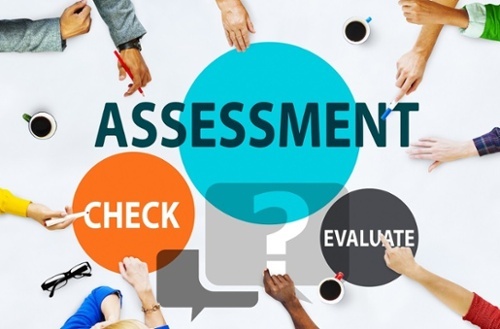Pre-hire assessments are important parts of the recruitment process that evaluate the candidate's technical abilities and behaviours related to the position being applied. They are a scientifically-proven predictive method of measuring how candidates perform tasks.
What are pre-hire assessments?
Pre-hire assessments can be surveys, tests, or questionnaires that potential candidates need to do as one stage of the hiring or interview process. These assessments can predict the candidate's future behaviour while performing the job.
Read more: 5 Reasons Why You Should Not Refrain from Recruiting Fresh Graduate
Examples of the pre-hire assessments can include several of the following types: written forms, basic literacy and numeracy tests, and even physical and fitness tests, applied for some special health-related jobs (such as military or police).

Why are pre-hire assessments important?
This is an effective way to determine an applicant's eligibility for a position and to evaluate their weaknesses and strengths in a task-based situation. Using assessments increases the possibility of choosing candidates who are more suitable for the job. This, in turn, can lead to budget savings, from reducing recruitment expenses and time and enhancing productivity, to decreasing the need for talent acquisition thereby saving costs.
Read more: Understanding company culture and its importance in talent acquisition
Employers can then use the results to match the skills of each candidate with the technical specifications and job requirements, increasing the chance of earning profit accordingly. Other benefits of making science-based recruitment decisions can be named are increased employee retaining ability, higher productivity and a more streamlined recruitment process.
Read more: 3 best tactics for recruiting Millennials - Part 1
Factors to consider when adopting pre-hire assessments
The pre-hire assessment method should be consistent with each company's talent acquisition process. Some organisations require cognitive and skill assessments, while others prefer cultural and personality assessments. However, there are general steps that can be taken to optimise its use to be as effective as possible.
Read more: How cognitive biases make interviews unreliable
Before the hiring process begins, you should learn more about the expected roles and responsibilities of the vacancies. Make sure the job description is included in the assessment process and prioritise the aspects that best fit your corporate culture. In addition, as a manager, you need to work with your organisation’s recruiters for every specific role to ensure that all parties understand each other and make plans in advance.
The next step, a wise move is to set up proficiency profiles based on high-performing employees in the company to facilitate the identification of applicants. This step can be aided if your organisation and the HR department already have a well-established candidate persona. Consider both their strengths and weaknesses to the ideals and sets of skills you want.
Please do not set the standards too high, or you will be let down by the actual level of candidates, in the end, it’s not easy to become a great performer at work and you need to give your employees time to develop.
Does your organisation need a Talent Management Solution? Let us help you!
 English
English  Vietnamese
Vietnamese 

